MTG vs. Splinterlands (from a dude who grew up playing Magic)

I recently made a trip to the big city (Topeka, KS) to visit some family. I know, it's not a big city, but when you despise cities like I do, it's big enough.
I stopped into a bunch of game stores, hobby shops and comic book spots to spread the good word and leave some Splinterlands flyers and business cards while I was there, and in the process, I rekindled an old fire... the fire of Magic the Gathering.
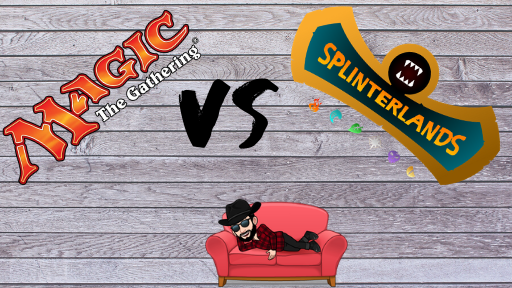
Did you know that MTG now has over 18,000 unique cards in play?
Obviously, it's difficult to make comparisons between MTG (which seems to be the be-all end-all of collectible strategy gaming) and my new favorite game (Splinterlands), but I'll see what I can do. I've certainly noticed many things that are different, and even though Splinterlands is a drafting game and MTG is a turn-by-turn game of combat, I have also noticed many similarities.
Once the Untamed Legendary airdrops are in, Splinterlands will have 241 unique cards in play. While this is a much smaller number than 18,000, we have not yet been creating new cards for 25+ years. If Splinterlands continues to grow and attract new players, in a few short years we will be nipping at their heels.
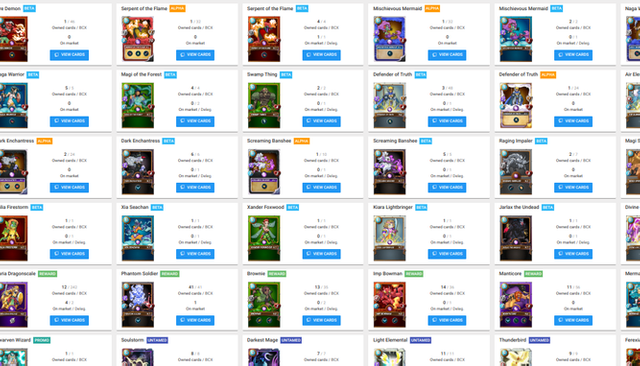
My History with Magic
When I was about 8 years old and my brother Aaron was 9, my parents gave us starter decks for a game we'd never heard of, called Magic: The Gathering. It was an entirely new concept in which players own their cards, build their collections and battle against the cards of others.
This game was incredible. My brothers and I played every day, absorbing the rules and nuances in spite of the 13 and over age recommendation on the game. We would visit our local comic book store (Prairie Dog Comics, Wichita, KS) to talk to the experts and to buy new cards. As little kids in the pre-internet era, we were fascinated by stories of cards that held untold collectible value. We dreamed of finding a Serra Angel or a Black Lotus, either of which (in our estimation) would make us filthy rich.
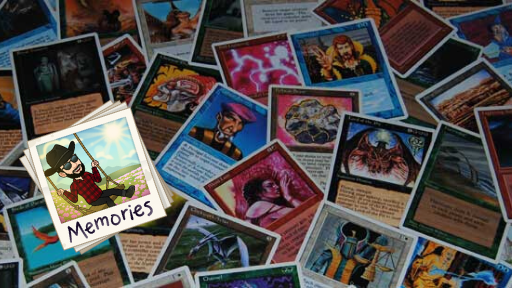
We gambled with our friends at our school's latchkey program, or as we called it, "playing for keeps." Everybody had cards. I remember long cafeteria tables covered with spread-out Magic cards and brooded over by greedy, strategy-smitten youth.
I don't remember how it ended. My oldest brother went to college out of town, and my younger brother went off to boarding school as a teenager. With no one to play with, I stopped, and I honestly have no idea what happened to my cards. Part of me thinks that my mom pressured me into selling them in one of those infamous garage sales from my late teenage years, but another part of me thinks they are still around, buried in a box somewhere for me to excavate twenty years from now.
Collecting or Playing?
If I had been a collector instead of a careless child, perhaps I would have kept those Revised Edition cards and taken better care of them. The simple, unavoidable fact of collectible cards is that they get worn out. Even if you're keeping them in protected sleeves, the more you play, the more those cards will bend, rip, scuff and tear.
As a child, I had to make a choice between collecting the cards and playing with them. For a little guy, it was an easy choice. My parents gave me everything I needed, and the last thing on my mind was accruing value to a collectible item. So I played. I played until those soon-to-be valuable cards were ripped, worn and faded to almost nothing.
With Splinterlands, you can collect and play simultaneously. It is an unprecedented synergy of collectible cards, a compelling game and an active trading market.
I have played nearly 15,000 matches in Splinterlands, and not a single one of those matches has resulted in a card being ripped or ruined in any way. There is no mint condition, because the mint condition of these cards is digital and nothing more. More importantly, there is no such thing as poor condition.
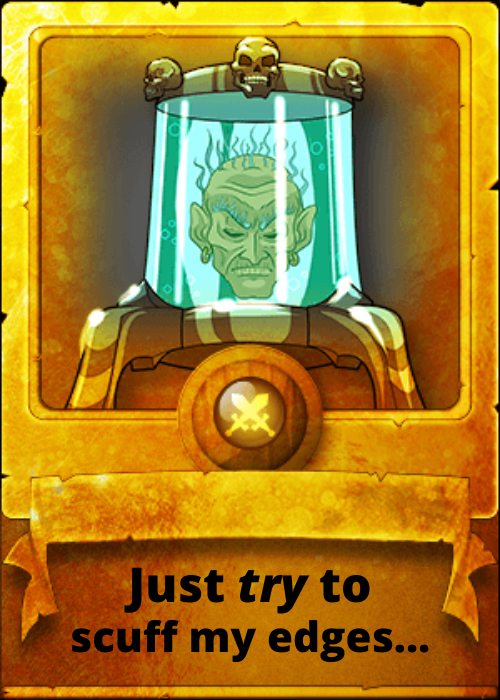
My New Magic Cards
The first new product I bought was a Deck-Builder's Toolkit. These each contain 100 basic lands, four sealed boosters from current sets, and 90 random non-lands from current sets. After taking it home and looking up the cards, I discovered that I found $40-$50 of value in the $20 retail box. I was so tickled that I went back and bought some additional boosters, which also revealed some quality cards.
Some of the the new, factory-sealed booster packs I purchased contained cards with edges that were already bent. How about that?
Since returning home from Topeka, I have bought two additional Deck-Builder's Toolkits to fill out this super basic collection. Now I have enough cards to teach @CarrieAllen how to play, and to attend Friday Night Magic at my local Hobbytown. I went last Friday and got my ass handed to me, but it was a great time and I'll definitely do it again.
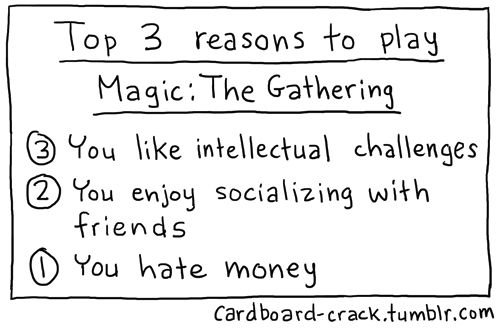
This Gets Expensive!
Sure, there may be a handful of Splinterlands players who quickly threw down large sums so they could have incredible collections early and earn the best rewards. Those players saw the game immediately as an investment, and more power to them for their foresight. I invested what I could, but it's tough to be broke and investing at the same time.
Still, you can play Splinterlands for free, earning rewards for as little as a one-time expense of $10. If I wanted to get serious about Magic: the Gathering, then the expenses have only just begun. There are hundreds upon hundreds of official products to choose from, all with varying degrees of value. How am I supposed to know how best to spend my money. How much do I need to spend? In Splinterlands, this is all very straightforward, but with MTG, I have no idea how much I need to spend to compete at Friday Night Magic. Probably somewhere in the neighborhood of $600, and with no rewards beyond the "value" of the cards themselves.
Once I have playable Magic cards, there's more! I'm going to need a slew of accessories, like playmats, tokens, counters, dice, card sleeves, card boxes, etc. Of course, a multitude of official gear can be purchased directly from Wizards. There are about a million sinks, and so very few faucets.
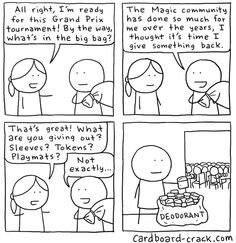
Selling Magic Cards
My first thought when I started seeing those valuable cards was: I can make money with this! But at a closer look, this may require substantial risk, investment and work. Sure, I can sell a card that's worth $5 on Ebay, but there's a lot that goes into that. First, Ebay will take a substantial fee for the listing. If it sells, I have to ship to the buyer. Shipping has all sorts of costs that aren't apparent when first considering an endeavor. Plus, if I don't get a card out quickly enough, I may get some negative feedback on my Ebay channel, which could hurt my selling chances going forward.
If I start buying Booster Boxes (36 15-card Booster Packs) from the correct sets, I'm sure to find some valuable gems. The question is, will I have the discipline, dedication and follow-through to actually sell the cards with the highest price tags, or will I simply make plans to sell them and drop the ball at some point?
I have no desire to play with cards that are worth much. I will never be able to compare with serious players in the competitive world; I just want a good collection of versatile cards, from which I can make decks for casual play.
Selling MTG cards for money almost requires you to be an expert in online sales, and you must always be willing to accept prices that are only 50-60% of the perceived "value" of the cards.
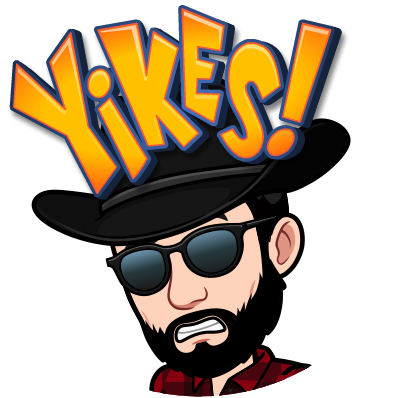
Selling Splinterlands Cards
If you're already playing Splinterlands, then you know how easy it is to buy and sell cards on an active, decentralized market. I can sell dozens of Splinterlands cards each day, in my pajamas, before I've even had any coffee. With Peakmonsters bids, I'm able to sell off certain cards instantly, a convenience worth paying for (but we don't have to.)
When I think of the postage that I would have spent sending out all the Splinterlands cards I have sold, were they not digital cards... I would have had to sell off my collection just to pay for stamps! But thanks to blockchain and the benefits that come with truly owning your cards, I'm able to do all this from the comfort of my home.
What About Online?
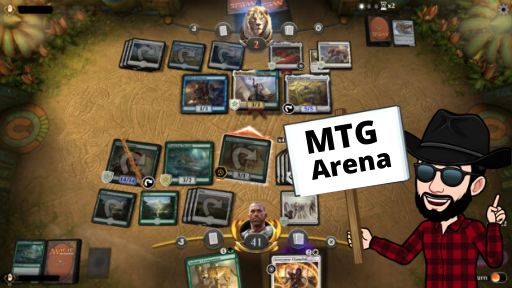
First, I can't play it on my Chromebook. Apparently there are too many high-resolution files, too much animation, voices, etc. So I had to download this massive program onto my new computer just to see how it works. When you first log in, the game guides you through a lengthy tutorial in which you are required to participate. The tutorial didn't give me any insight into the way Arena works; it simply instructed my on basic battle strategies.
They make all sorts of promises of rewards. There are Orbs, Gold Coins and some kind of Gem. You must seek and accumulate these "currencies" to unlock new types of play, and to earn "booster packs". These boosters, however, exist only in MTG Arena, and owning them does not actually mean that you own anything.
At first, I was incredibly confused. How do they expect me to want to earn these things? Already in the first couple hours, I found myself thinking "What's the point?" In Splinterlands, I see rewards every day, rewards that I actually own. When it comes down to it, "owning" something is just possessing the ability to sell it. With MTG Arena, I see no sign of that ability, so congratulations, Hasbro owns your so-called "assets."

With MTG Arena, I see a lot of bells and whistles. I see an online game that, while incredibly well-designed, is completely separate from the solid worldwide community of MTG collectors and players. It's fantastic for new players to learn about the rules of the game and the abilities of cards with which they aren't familiar, but it's a different game.
Suppose I played Arena for a couple years, the way I have played Splinterlands consistently. Perhaps I would want to earn some money for my efforts, but turning my account into dollars would be a much more difficult step than every step I took to get to that point. I would have to sell my entire account. More importantly, I would have to trust the buyer, and the buyer would have to trust me. There is plenty that could go wrong in the transaction, and if I'm incredibly lucky, I may get $100 for my account. That's just not the kind of rewarding that I'm looking for.
Last year, I sold a Gold Foil Gold Dragon (Splinterlands card) for about $700. To this day, with years of MTG under my belt, I have never sold a single Magic card.
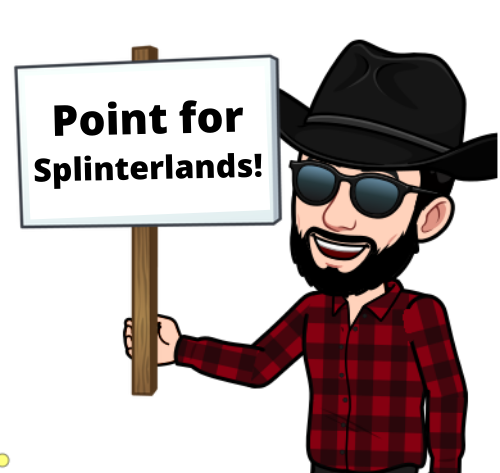
Diversifying into MTG
I'm interested in getting to know this community and this game better, as it is the greatest example of where we are headed with Splinterlands. If you have MTG resources or tips on where to sell cards, which cards to buy, or even a killer Commander deck that you'd recommend, please share in the comments below.
For a Brand New Player...
Let's be honest: Neither game has an easy-to-learn, get-up-and-go, squeaky clean interface. MTG Arena may use a lot more fancy graphics, but I can tell there is a lot to learn. Splinterlands has made joining the STEEM blockchain fairly simple with included account creation, but there is still a huge learning curve to earning all the benefits Splinterlands has to offer.
Splinterlands
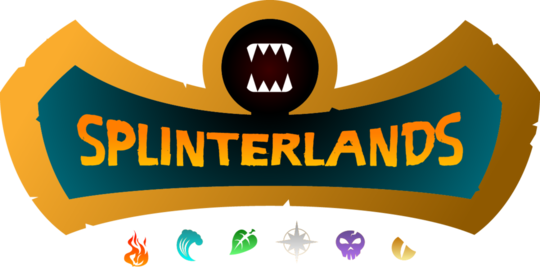
I'm trying to imagine being a brand new player to Splinterlands and trying to take it all in. Sure, I own my cards (that's most likely what brought me here), but when I sell them, what do I do with the money? What's a STEEM? What the hell is an exchange? And don't even get me started on private keys...
The rules of the Battle portion of Splinterlands are simple enough (once you find it), even though there are tons of abilities to learn. The game can be learned by being stumbled through, and often the lower-ranked battles are quite easy for brand new players to win.
MTG ARENA
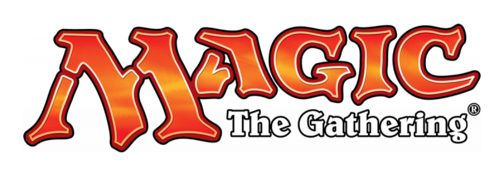
In Magic Arena, even for a veteran MTG player, the interface is daunting, to say the least. You are forced into computer simulated battles with pre-determined decks. I was left thinking "I already know the rules of the game, what about card ownership?" As I won these tutorial battles, I was "rewarded" by new cards in my collection, though I was unsure what that meant.
The MTG Arena interface is very good at telling me where to go and what to do next, but I get the idea that it is extremely complicated and would take several days of regular play to learn in its entirety. I'm not saying I won't play that much. It's a fun game... we'll see what happens.
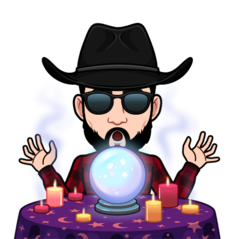
The Bottom Line:
I have nothing but respect for Magic the Gathering. It has been a paradigm-changing game that has lasted through the years with a loyal and devoted fan base. They have expanded into a multiverse of lore and imagination that rivals even that of Dungeons and Dragons. I have huge hopes with Splinterlands expanding into all these realms, and now that I have tasted a bit of the alternatives, I'm more bullish on Splinterlands than ever before.
The disciplined gamer of today craves rewards. Not only rewards that accumulate in your account, but rewards that are easily transferable into real money (the kind that can pay the bills). I have always loved games that are intrinsically connected to money, and in Splinterlands, I have found a game that is not only compelling to play each day, but represents a savings account for my family.
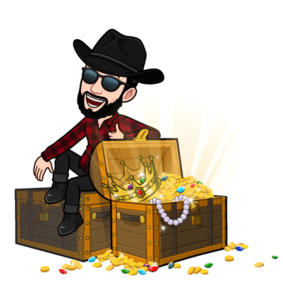
The world needs more Splinterlands. Spread the word. It may be difficult at first for these old-school gamers to wrap their heads around a game that allows true asset ownership, but once they understand, the floodgates will be opened.
What Do You Think?
How do you like Magic the Gathering? Have you ever played MTG Arena? Do you have a fun story about attempting to sell an account from another "rewarding" game so you could invest more into Splinterlands? Share it with me!
In Conclusion
So what have I learned from dabbling in MTG for the last couple weeks? I've learned about what it really means to own your cards. I've learned how important it is that true digital assets do not deteriorate in quality. And I've learned that the ability to sell is the most crucial factor, when referring to the monetary "rewards" of a game.
You probably could have predicted this response from me, but...
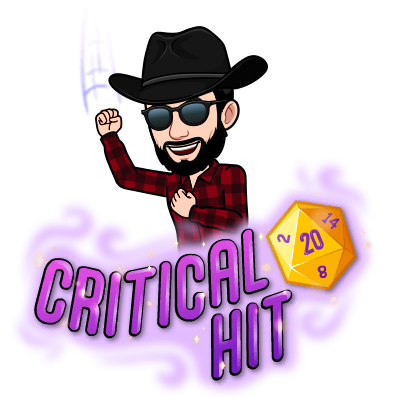
Splinterlands wins. Splinterlands is King.
I set out to compare the points about MTG and Splinterlands that have really jumped out at me, but it's important to remember that they are completely different games. While at some point we will have a turn-based combat expansion, for now Splinterlands is a rather simple drafting game.
This post is not meant to discourage anyone from playing Magic the Gathering. As I said before, it is an amazing game that I have loved for most of my life. But when I break it down into terms of what I'm looking for, it's Splinterlands all the way baby!
Thanks for reading my blog!
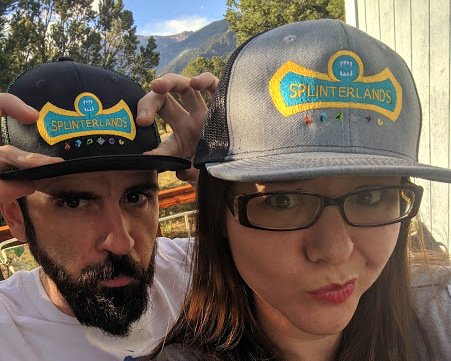

When I was younger my friends and I would play magic the gathering. We would have cards we owned but share them throughout our group. If someone wanted to do a vampire deck and we weren't using them we would share them. It allowed us to try some pretty crazy things and was an amazing memory.
You know that the designers of Splinterlands were once top MTG top players, right? They used all their experience and managed to build the perfect MTG for the blockchain.
No, I didn't realize, but I'm not surprised. Which ones?
I think both @aggroed & @yabapmatt were pro hearthstone players.
Aaaaaaand if the power goes out.... ;)
Slightly one-sided, but I hear ya. However, it's not for me.
"Selling MTG cards for money almost requires you to be an expert in online sales.."
So true. I did it for 17 years until recently. Played for years before I went into business, too.
Did you ever get into online forums for MTG stuff?
I used to moderate a forum called "The Rumor Mill", on MTGNews and MTGSalvation. We ticked off Hasbro/Wizards of the Coast for many years, excitedly talking about upcoming releases.
You post has been manually curated by BDvoter Team! To know more about us please visit our website or join our Discord.
Are you a Splinterlands player? If Yes, then checkout MonsterMarket.io. Get instant 3% cashback on every card purchase, and 2% cashback on every booster pack purchase on MonsterMarket.io. MonsterMarket has the highest revenue sharing in the space - 60% for cards and 40% for packs, no minimum spending is required. Join MonsterMarket Discord.
BDvoter Team
Wow, that was unexpected. Thank you very much!
Awesome post I tried selling cards at my shop and they pay pennies for the real value of cards. So I stopped about a year ago and went all on Splinterlands for this very reason!
Awesome! I mean, that you play Splinterlands all the time, not that the shop guys were trying to rip you off on your Magic cards lol. Do you know what they were willing to pay in terms of percent? I'm just curious.
40% of tcgplayer pricing
so, are you getting new players onboard? is that working in any way? what are the reactions?
Hello!
This post has been manually curated, resteemed
and gifted with some virtually delicious cake
from the @helpiecake curation team!
Much love to you from all of us at @helpie!
Keep up the great work!
Manually curated by @solominer.
@helpie is a Community Witness.
Mtg only appeals me for all the fantasy surrounding it. But never played, and dont think I will ever spend some time in learning how to. Splinterlands all the way for me!
Nice review. Splinterlands is King and will remain so with innovative leadership
Hi, @chrisroberts!
You just got a 4.53% upvote from SteemPlus!
To get higher upvotes, earn more SteemPlus Points (SPP). On your Steemit wallet, check your SPP balance and click on "How to earn SPP?" to find out all the ways to earn.
If you're not using SteemPlus yet, please check our last posts in here to see the many ways in which SteemPlus can improve your Steem experience on Steemit and Busy.